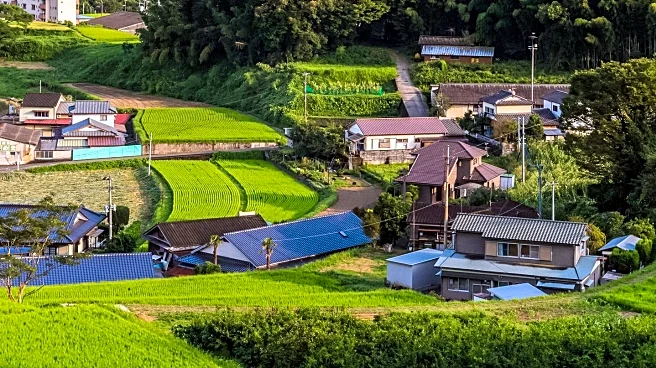What's Happening?
Lexi Smith, an American teacher from Atlanta, has relocated to the Chiba Prefecture in Japan, where she teaches English at an eikaiwa, or English conversation school. Her classes range from one-on-one to small groups, with students aged from two to seventy-three years old. Smith earns approximately $1,700 per month and pays $236 for her apartment, highlighting the affordability of living in the Japanese countryside. Her experience offers insight into the lifestyle and economic benefits of living outside urban centers in Japan.
Why It's Important?
Smith's story underscores the economic advantages of living in rural Japan, where the cost of living is significantly lower than in major cities. This could be appealing to expatriates and locals seeking affordable housing and a quieter lifestyle. Her experience also highlights the demand for English teachers in Japan, offering potential job opportunities for foreigners. The affordability and cultural immersion could attract more international residents, contributing to the diversity and economic vitality of rural areas. This trend may influence housing markets and local economies, encouraging development and investment in these regions.
What's Next?
As more individuals consider moving to rural areas for economic reasons, there may be increased interest in developing infrastructure and services to support growing populations. Local governments might implement policies to attract foreign workers, such as offering incentives or improving amenities. The education sector could see a rise in demand for English teachers, prompting schools to expand their programs. Additionally, Smith's experience may inspire others to share their stories, fostering a community of expatriates and encouraging cultural exchange.
Beyond the Headlines
Smith's move to Japan highlights broader themes of globalization and cultural exchange. Her story reflects the growing trend of individuals seeking international experiences and the impact of cultural immersion on personal growth. It also raises questions about the sustainability of rural living and the potential challenges of integrating into a different culture. As more people explore living abroad, there may be discussions about the balance between preserving local traditions and accommodating diverse populations.










